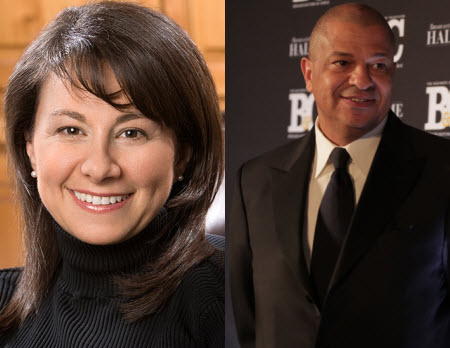Coalition Formed to Fight 'AllVid'
The smarter way to stay on top of the multichannel video marketplace. Sign up below.
You are now subscribed
Your newsletter sign-up was successful

Click here for more FCC set-top box news.
Even as the FCC was unveiling chairman Tom Wheeler's proposal to bring competition to the set-top market by "unlocking" cable boxes and making the information available to competitors who want to wed traditional and online video content (an AllVid-like proposal), the National Cable & Telecommunications Association, American Cable Association, Motion Picture Association of America, and a host of others were unveiling the Future of TV Coalition to beat the commission to the consumer video choice punch.
The coalition, co-chaired by Alfred Liggins of TV One and Nomi Bergman of Bright House, will celebrate and promote what its 47 members say is the already thriving innovation in video experience options to provide even more choices.
Look for it to be making that point loudly to the FCC as the commission collects comments on the chairman's proposal, which was premised on the assertion that the video access device market instead needed a competitive boost because choices were few and prices high, with consumers "chained to their set-top boxes because cable and satellite operators have locked up the market."
"The ‘AllVid’ proposal is a brazen money grab by Big Tech companies that would do severe damage to the programming ecosystem, and in particular, niche and minority-focused networks," said Liggins in a statement. "Everyone who cares about quality, diverse television should let the FCC know that AllVid is a harmful non-starter.”
As NCTA argued in comments warning the FCC off an AllVid approach, the coalition said Wednesday (Jan. 27) that such an approach would allow a handful of tech companies to "replace innovation with government regulation." It said that AllVid "would force programmers and TV providers to dismantle their shows and services for these companies to repackage, reuse, and exploit without negotiating for the rights like everybody else in the market does today. AllVid would not give viewers access to any new programming or content that isn’t already available in their homes and would not replace or lower their existing television bills."
FCC officials speaking on background say their proposal would not force the disaggregation of TV content, would respect existing MVPD contracts with programmers and their subs, and would not require anyone to get a competing device if they were satisfied with their current box.
The smarter way to stay on top of the multichannel video marketplace. Sign up below.
But they also signaled that they think it is necessary to "unlock" the MVPD's hold on video access devices.
Other members of the new coalition include AT&T/DirecTV and DISH.
Contributing editor John Eggerton has been an editor and/or writer on media regulation, legislation and policy for over four decades, including covering the FCC, FTC, Congress, the major media trade associations, and the federal courts. In addition to Multichannel News and Broadcasting + Cable, his work has appeared in Radio World, TV Technology, TV Fax, This Week in Consumer Electronics, Variety and the Encyclopedia Britannica.

